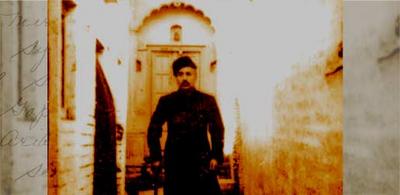the first of my two is the icon of the tragic heroine, most apparent in all the four feature films; sita and amina who kill themselves in subarnarekha and in garam hawa, respectively; marichka, who dies in an accident pining away for her lover (shadows of forgotten ancestors) and the sister in ‘uski roti’ who is raped by a local goon.
in ritwik ghatak’s ‘subarnarekha’ the exquisite madhabi mukherjee plays sita who along with her brother and a lost child try and begin life anew after being displaced from their home in bangladesh post partition. the new home is on the banks of the river subarnarekha near an abandoned british air force base and a forest of sal trees. what starts off as perhaps a conventional potboiler suddenly takes a turn for the excruciatingly visceral when all of a sudden new meanings become clear, new relationships are constructed in our minds and innocuous details suddenly become loaded with meaning as we superimpose myth, history and memory into the locations, the dialogues and the characters. a portrait of a newly independent nation and displaced houses, the desire to dream, a longing for the motherland and her eventual betrayal. the vision is harsh, cynical and yet hopeful. it is all terribly devastating. easily one of the best films i have seen- i challenge you not to cry.
‘garam hawa’ by m s sathyu tells the story of the partition and its results through the eyes of mirza salim- an owner of a shoe factory in the
the politics of gender and the status of women seems to be the central theme of mani kaul’s ‘uski roti’. everyday a wife waits at a rural bus stop in punjab for her husband with his daily meal. as she waits one day her sister is raped by a local goon. slow, languorous, deliberately arty the movie can be accused of being extremely pretentious as dialogue is spoken off synch, the time line moves back and forward at random as she waits with flies buzzing around her, he devours chicken with relish and innumerable shots of women and men walking in the baking heat of the punjab. meditative at best, frustrating at its most slow, i was not quite sure about the film as i was watching it, but it left me with a strange sense of emptiness. what that emptiness was i cant quite put my finger on- boredom or fascination.
‘i am 20’ was a short documentary that spoke on the 20th anniversary of the indian nation to 20 year olds all over the nation. they included serious pontificators, fluffy poseurs, army men, villagers, work women and work men of all descriptions. this films division production was interesting because it came from, in a certain sense the mouthpiece of the government. while the cynicism in some was apparent, it still glossed over the differences to glorify the values of labor, plurality, work and truth. i wonder if a similar film was made now “i am 20” or even “i am 58” what value system would it embody?
and that is where i think sergei parajnov’s ‘shadows of forgotten ancestors’ steps in. within the context of a socialist utopia it dares to speak of a small forgotten community. it tells us of a life in a rural hamlet in the hills somewhere in






2 comments:
Hey while searching on the internet for the film Garam Hawa I cam across your blog. I am a research scholar who is trying to get this movie because I saw it as a child and want to write a paper on partition in cinema. Have already written a paper on Ghatak's trilogy. However I have failed in finding a copy of the movie. Can you please help me?
Oh in case you can be of any help please send me an email - kamayanik@yahoo.com
Post a Comment